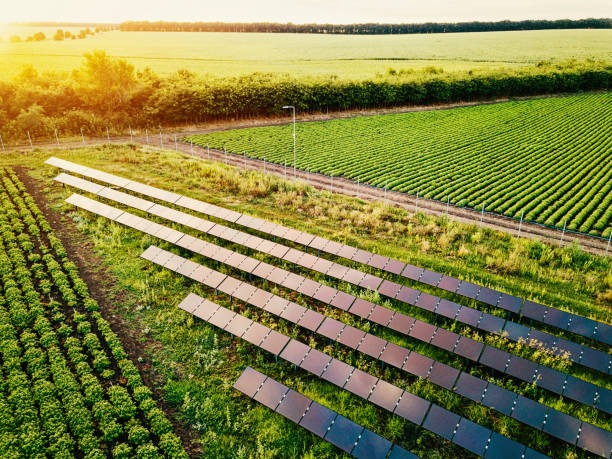Sustainable Agriculture
All about sustainable agriculture.
Preeti Sinha
9/26/20233 min read


In a world where population growth and climate change threaten the very foundation of our food systems, the concept of sustainable agriculture has emerged as a beacon of hope. Sustainable agriculture is not merely a buzzword; it's a crucial approach that addresses the pressing need to produce food while preserving our environment and ensuring the well-being of future generations. In this blog, we will delve into the essence of sustainable agriculture, its principles, benefits, and the innovative practices that are shaping the future of farming.
What is Sustainable Agriculture?
Sustainable agriculture can be defined as a holistic approach to farming that seeks to balance the need for food production with the long-term health of ecosystems, social equity, and economic viability. It's a profound shift from traditional, resource-intensive farming methods toward practices that promote environmental stewardship, economic profitability, and social responsibility. This shift is driven by the recognition that the planet's resources are finite, and we must cultivate our land and resources responsibly to meet the needs of current and future generations.
Key Principles of Sustainable Agriculture
1. Soil Health: Healthy soils are the bedrock of sustainable agriculture. Practices like crop rotation, cover cropping, and reduced tillage help build and maintain soil fertility, structure, and biodiversity.
2. Water Management: Efficient water use and conservation are essential. Techniques such as drip irrigation, rainwater harvesting, and precision farming minimize water wastage.
3. Biodiversity: Promoting biodiversity in and around farms helps control pests, improves pollination, and enhances resilience to climate change. Practices like hedgerow planting and integrated pest management are vital.
4. Agroecology: This approach considers the farm as an ecosystem and focuses on understanding and mimicking natural processes. It includes practices like polyculture (growing multiple crops together), agroforestry, and organic farming.
5. Sustainable Livestock Practices: Responsible animal husbandry, including rotational grazing and humane treatment of animals, is crucial for sustainable agriculture.
Benefits of Sustainable Agriculture
1. Environmental Preservation: Sustainable agriculture reduces soil erosion, minimizes chemical runoff, and mitigates greenhouse gas emissions, making it a vital tool in the fight against climate change.
2. Improved Soil Quality: Practices such as cover cropping and reduced tillage enhance soil fertility and reduce the need for synthetic fertilizers.
3. Water Conservation: Sustainable farming methods reduce water consumption, benefiting both the environment and water-stressed regions.
4. Increased Biodiversity: By promoting natural habitats and reducing pesticide use, sustainable agriculture supports diverse ecosystems and protects endangered species.
5. Economic Viability: Farmers adopting sustainable practices often experience increased yields, reduced input costs, and improved resilience to market fluctuations.
6. Food Security: Sustainable agriculture ensures the long-term availability of nutritious food, contributing to global food security.
Innovations in Sustainable Agriculture
1. Precision Agriculture: The use of technology, such as GPS-guided tractors and sensors, allows farmers to optimize resource use, reducing waste and increasing productivity.
2. Vertical Farming: By growing crops in vertically stacked layers, indoor farms can save space, conserve water, and reduce the need for pesticides.
3. Aquaponics and Hydroponics: These soilless farming methods use nutrient-rich water to grow crops and raise fish in a symbiotic system, increasing resource efficiency.
4. AgTech: The integration of technology, including drones, AI, and blockchain, into agriculture is revolutionizing the way we manage crops, track supply chains, and monitor environmental impacts.
5. Organic Farming: The organic food movement continues to grow, with more consumers choosing products grown without synthetic chemicals and antibiotics.
To sum up
Sustainable agriculture is not just an alternative; it is the future of farming. It represents our commitment to preserving the planet, nourishing growing populations, and ensuring the prosperity of generations to come. By adhering to the principles of soil health, water management, biodiversity, agroecology, and responsible livestock practices, we can build a more resilient and sustainable food system. As consumers, we play a vital role in this transformation by supporting sustainable farming practices and making environmentally conscious food choices. Together, we can cultivate a greener and more prosperous future for all.
